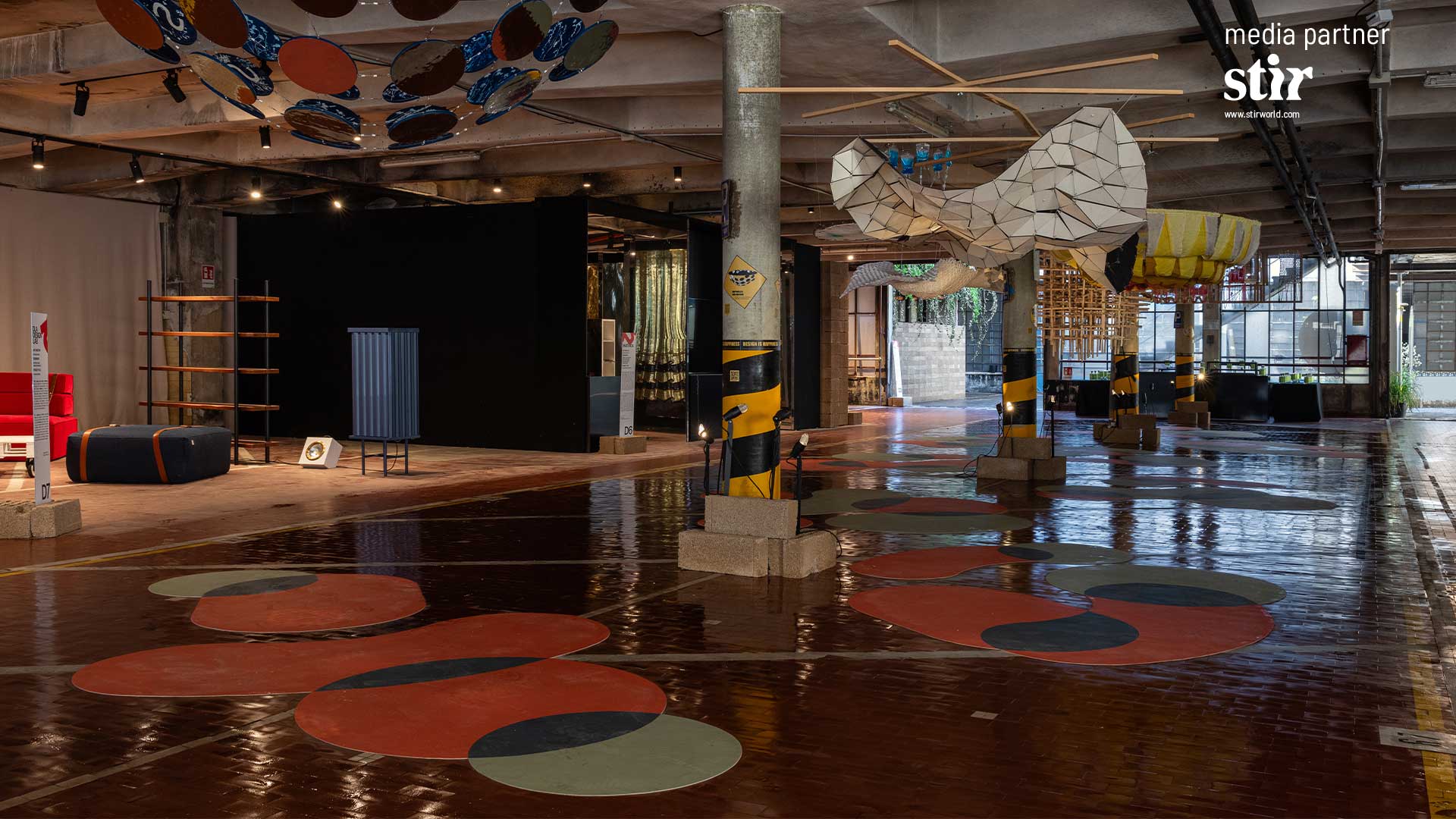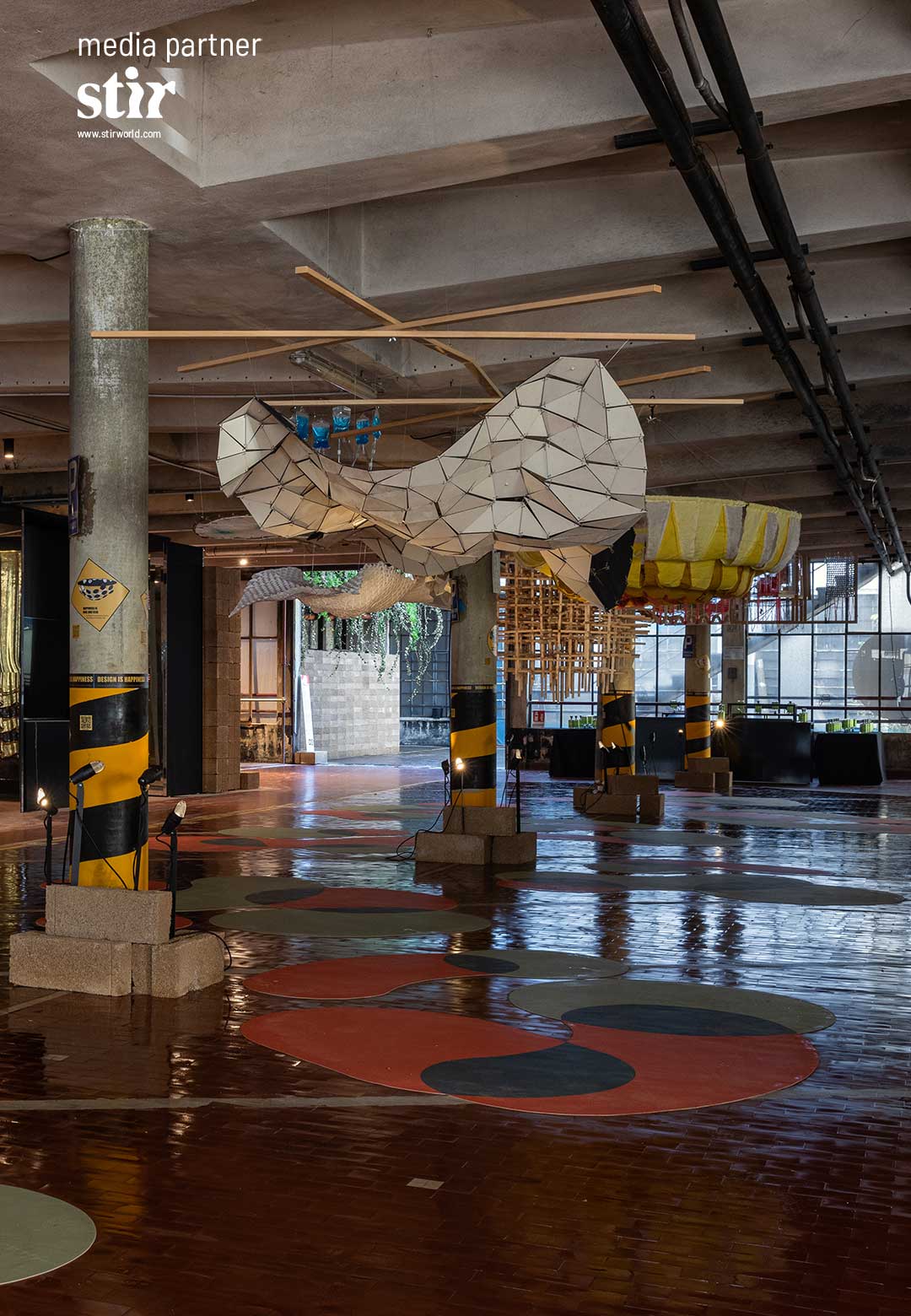Design Variations 2024, a distinctive design exhibition, was held during Milan Design Week from 15 to 21 April, 2024. Organised by Milan-based practice MoscaPartners, the fourth edition of the showcase was hosted in an age-old garage in the Darsena area of Milan, presenting works of over 90 designers from 26 different countries. Founded in 2011 by Caterina Mosca and Valerio Castelli, MoscaPartners specialises in curating and producing one-of-a-kind events for design and photography. With Design Variations 2024, their aim was to exhibit the importance of materiality and circular economy by showcasing unique works and installations by emerging and established artists and designers from all over the world.
The 2024 edition of Design Variations was marked by two important collaborations. The first was with the Milanese architecture studio Park Associati and the second, with Franco-Italian artist Nathalie Du Pasquier. Once guests entered the historic building, originally constructed in 1938 and completed in 1948, they were greeted by a kaleidoscope of colours and graphics that express the artistic vision of Du Pasquier. The site-specific artwork, titled Corridor, consisted of 12 decorative panels printed on MEG—a durable and versatile material sourced from Abet Laminati. The installation transformed the entrance into a tunnel of graphic exploration, motivating guests to embark on an immersive journey of vibrant hues and forms. “In a world where art and design meet and influence each other so strongly, we are excited to collaborate with such a perceptive and expressive artist, continuing our commitment to promoting creative projects capable of leaving a mark and a stimulus in the international cultural landscape,” Mosca told STIR, about the collaboration with Du Pasquier.
The second collaboration for the exhibition was with architecture studio Park Associati. The design firm conceptualised the spatial design using thermal hemp bricks and lime enabling the creation of fluid and flexible architectural elements. The dry-stacked blocks were used to create curved and linear room dividers, redesigning the setting in a continuous dialogue with the original space. Covering around 3,000–square-metres, this modular exhibition offered a sustainable solution that celebrated both innovation and environmental responsibility.
MoscaPartners' mission was realised through a commitment to a circular economy where, after an event, the materials used represent a potential resource for the future. Keeping this in mind, both the site-specific works will be repurposed in new locations. Moreover, the choice of a historic garage as the exhibition venue, as per Mosca, was a deliberate choice. Located within the 5VIE district, the space, she added, “suggests unprecedented combinations, offering an updated vision of what it means to design today, returning it to its true experimental nature and ongoing quest.”
As guests ascended the wide ramp leading to the first floor of the garage, they were welcomed by a striking installation titled The Canvas and the Plinth from the Japanese company Stellar Works, and curated by Chinese architecture studio Neri&Hu. The work, which was a tribute to Marco Zanuso, the designer of the venue, and the artist Gianni Dova, who created the decorations on the façade in 1948, consisted of a series of large canvases hung to create a vibrant path, highlighting the several architectural layers of the space. This platform offered guests a glimpse of the latest collections by leading design studios such as Michele De Lucchi, Studio Stefan Scholten, and Neri&Hu among others.
A suspended catwalk led guests to a second spacious loft area, which hosted a selection of studios investigating material, memory, and form, such as TAMART—a young furniture brand of British origin founded by Amos Goldreich in honour of his late parents Tamar de Shalit and Arthur Goldreich. The exhibition Powered by Love, designed by Goldreich, featured 10 new pieces of wooden furniture that reinterpreted the original projects of his parents. Additional highlights in this section included works such as Totally Ordered Structures, an installation by Pulkra, Inspiring Lines by Luigi Lacucci, Barricades by Mario Trimarchi, and Fairytale by Alexander Lervik.
An external metal staircase led to an exhibition area featuring the works of Illaripuna, making its debut at Milan Design Week with Willka Hilos Sagrados, a novel range of home textiles, consisting of distinctive soft furnishings, including blankets, tapestries, ponchos, and rugs. This collection by Argentinian designer Magdalena Sanchez de Bustamante, aimed to highlight the ancient artisanal techniques of the Andes, by crafting sustainable products made with local natural fibres. This section of the exhibition also included works by internationally renowned designers such as Giulio Iacchetti, Francesca Lanzavecchia, Elena Salmistraro, and Vincenzo Castellana.
The outdoor space of Design Variations 2024, in the 5VIE district, was the hospitality area, offering guests the opportunity to take a pause while immersed in a modern urban garden conceptualised by Marianna Merisi, Landscape Director at Park Associati. Here, visitors were welcomed by a quaint scene set featuring tables, sofas, and armchairs from the Hiray collection, and Kleo rugs designed by Ludovica + Roberto Palomba for Kartell. Plants from the Leonelli nursery in Castelletto Ticino were illuminated by KIX spotlights and Stievie lights from Deltalight, creating a charming ambience.
The exhibition continued in the final space with the Estación de Cafe, presented by Carot Carpenteria and designed by Santiago Carot. Inspired by the Bialetti moka coffee pot, this object stood out for its visually arresting form.
MoscaPartners always dedicate space and offer visibility to design schools and students, who they believe are the future players and protagonists in the world of design. At Design Variations 2024, an expansive section of the ground floor was dedicated to ‘Design is Happiness,’ showcasing students' works from the Landscape and Interior Spatial Design workshop at the School of Design at the Politecnico di Milano. The installation consisted of a range of suspended models displaying the students’ thoughts on the theme of happiness. The exhibition, curated by Michele De Lucchi, Francesca Balena Arista, and Marco De Santi, was part of the general theme of ‘Interdependence’ proposed by the School of Design at Politecnico di Milano.
STIR is a media partner with 5vie Design Week.
Stay tuned to STIR's coverage of Milan Design Week 2024 which showcases the best of exhibitions, studios, designers, installations, brands and events to look out for. Explore EuroCucina and all the design districts—Fuorisalone, 5vie Design Week, Isola Design Week, Brera Design District and Porta Venezia Design District.






 Sign in with email
Sign in with email










What do you think?